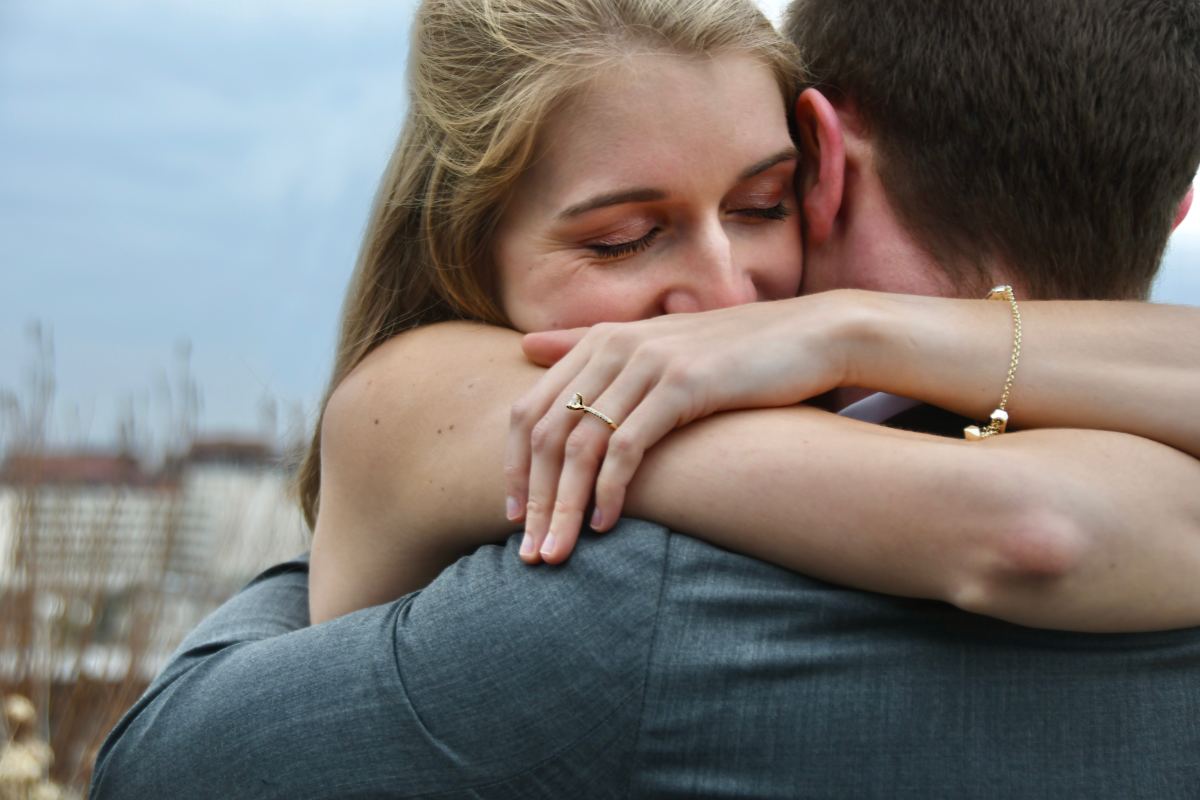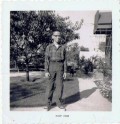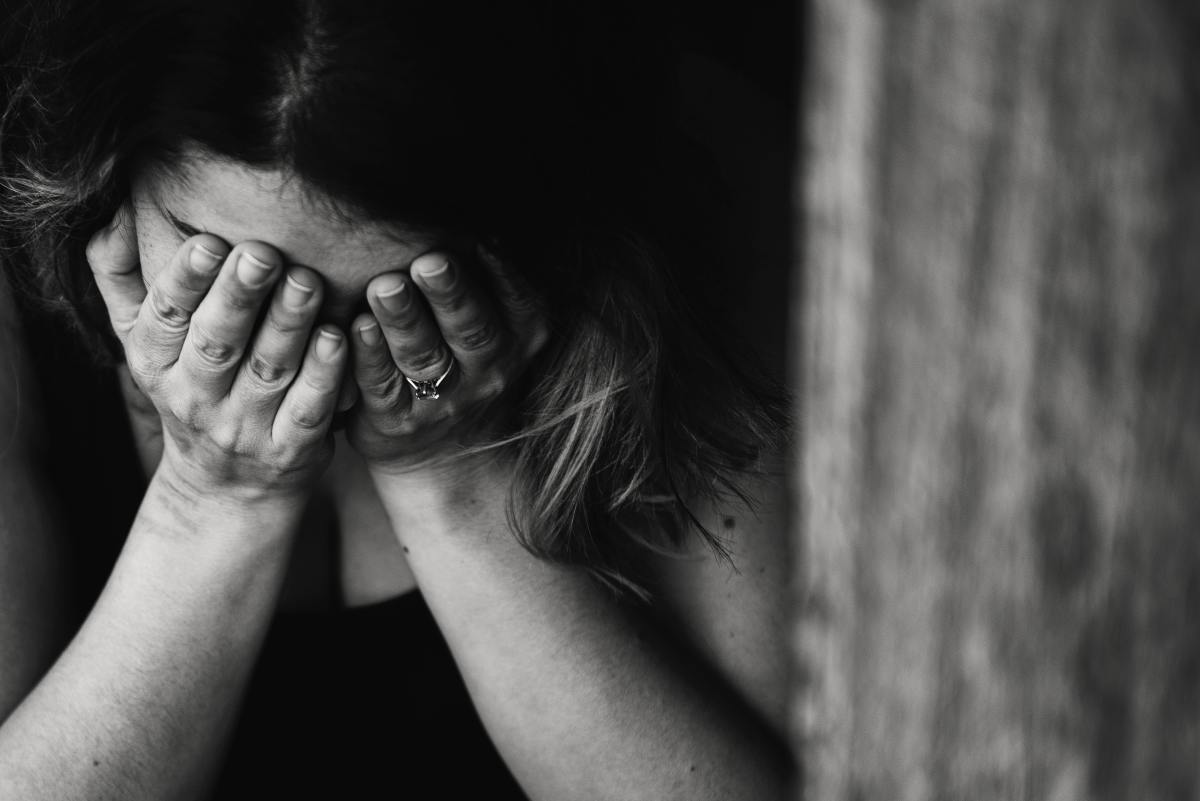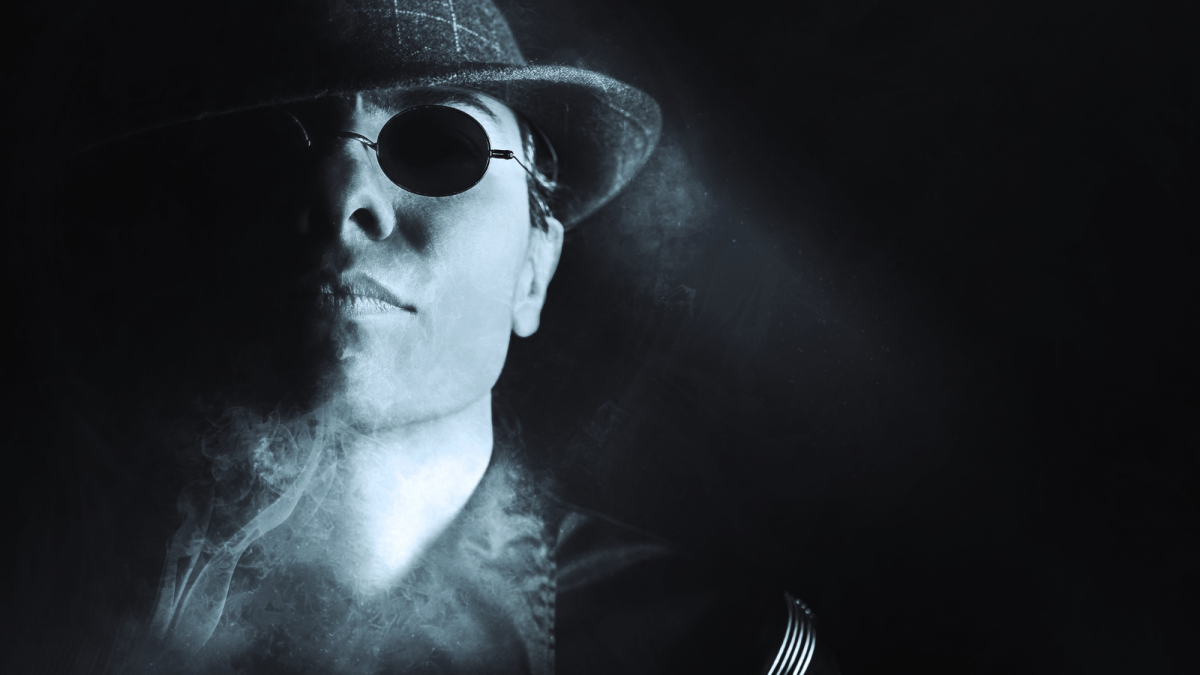Everyone Needs a Support Group
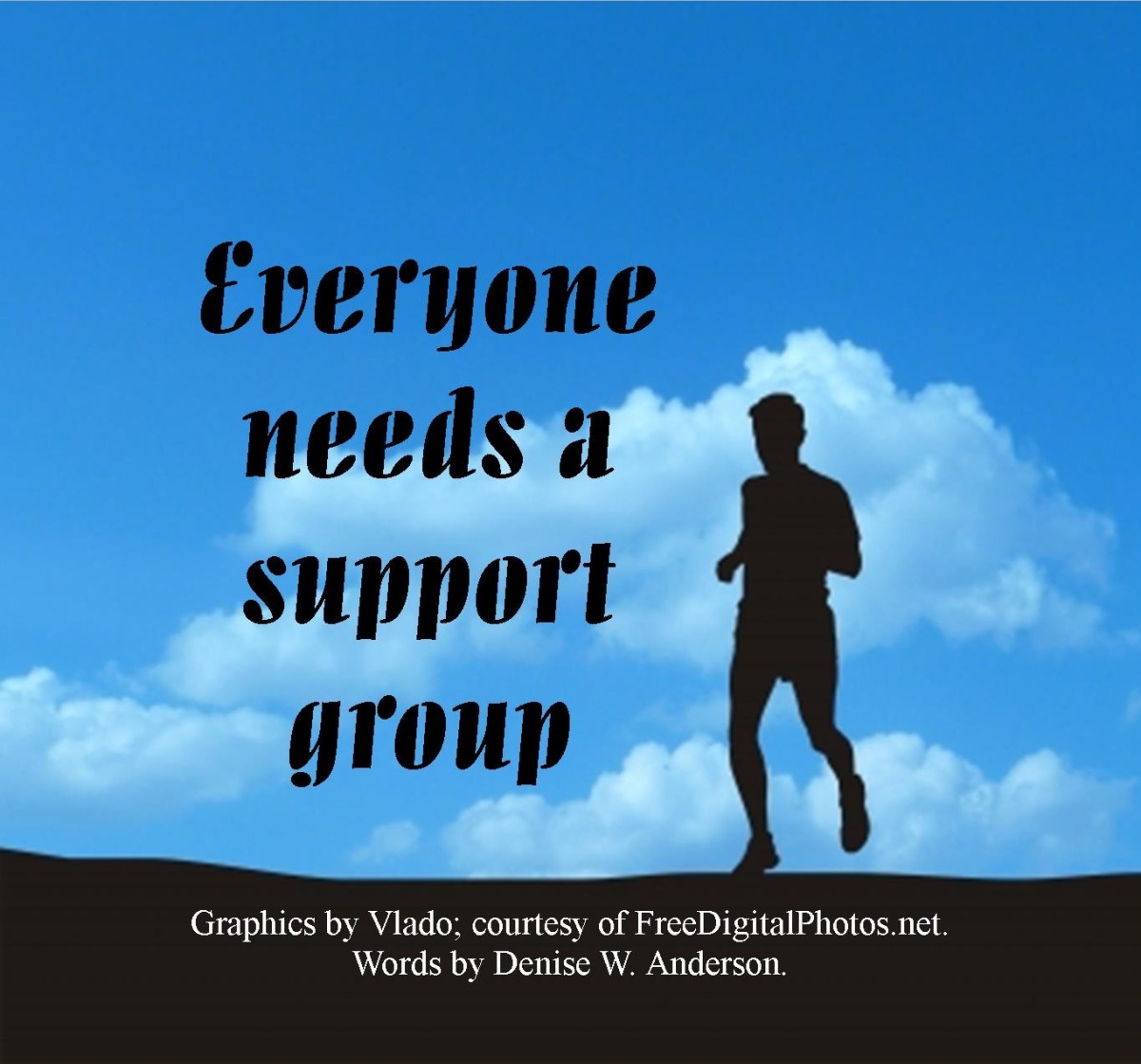
What do you do when you are lonely?
A Bother Becomes a Brother
His name was Bob. My parents took him in when I was a teenager. He was an unusual boy, with unkempt hair, crooked teeth, and big brown eyes. At first he was a bother. He would follow me around like a puppy while I was outside doing my chores, asking me questions I couldn't answer. Then one day, I snapped at him, annoyed that I couldn't do anything without him around. He backed away and hid while I finally had a moment's peace. Before I could report the incident to my parents, I heard a loud whinny.
I looked up to see him mounted on the black stallion we were pasturing, galloping into the distance. I ran into the house and shouted for help. My older brothers came running and went after him while my mother listened to my tale of woe. Then she told me the story of how Bob came to be a part of our family and coached me on what to do to help him.
After that, Bob became my little brother. I showed him how to handle horses with gentleness, stroking their necks and talking to them while he fed them snacks. I started answering his questions and helping him understand how the world worked, and what he could do to make it better. The day he left our home, I cried.
Loneliness and Isolation Lead to Victimization
In the race of life, loneliness and isolation are two of the biggest risk factors when it comes to abuse, depression, and misuse of substances. It is easy to blame others when we are lonely or isolated, but in reality, social involvement is a two-way street. Although we are largely a product of our environment, thinking this way gives rise to a victim mentality. As individuals, we exert a great deal of influence on our environment and those around us.
Bob made every effort to become a part of our family. Initially, I rejected him. To me, he was simply a stupid, annoying little boy that had been dumped on our family. Once I understood where he was coming from, and that my parents had offered to take him in, I was able to look past his annoying habits, and accept him for who he was. We were able to develop a relationship that was of benefit to both of us.
The World Influences Us and We Influence the World
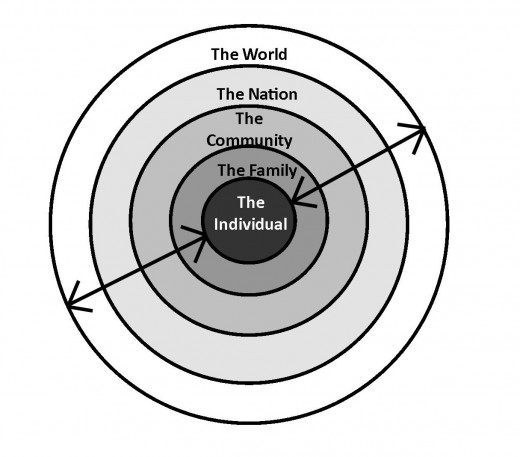
The Hierarchy of Influence
The bull's eye diagram shows that the hierarchy of influence starts first and foremost with the family. By definition, the nuclear family consists of the individual, their siblings, and the birth parents. Not all are fortunate enough to have this type of situation, however, and family has evolved now to simply mean those with whom one resides, whether or not they are blood relatives.
No matter what the constitution of the family, it is the primary socializing influence in the life of a growing child. When the family abdicates this role, peer groups and the media take center stage, and the individual is swayed heavily by their influence. Ultimately, the local city, county, and state become responsible.
Fortunately, as we grow to adulthood, we have a choice as to how we respond to our upbringing. We either stay with the way we were raised or choose something different. We have the opportunity to reach out, forming relationships that go above and beyond our past. Some even break the cycles of poverty, abuse, and victimization, bringing strength to themselves and others in their communities.
The bull's eye diagram shows that our influence goes both ways. Our family, community, city, state, and world influence us, and we influence them. Each time we act in concert with others, the harmony or discord that we form affects all around us. When we choose to be the support system for others, we set in motion a ripple effect that lasts for generations.
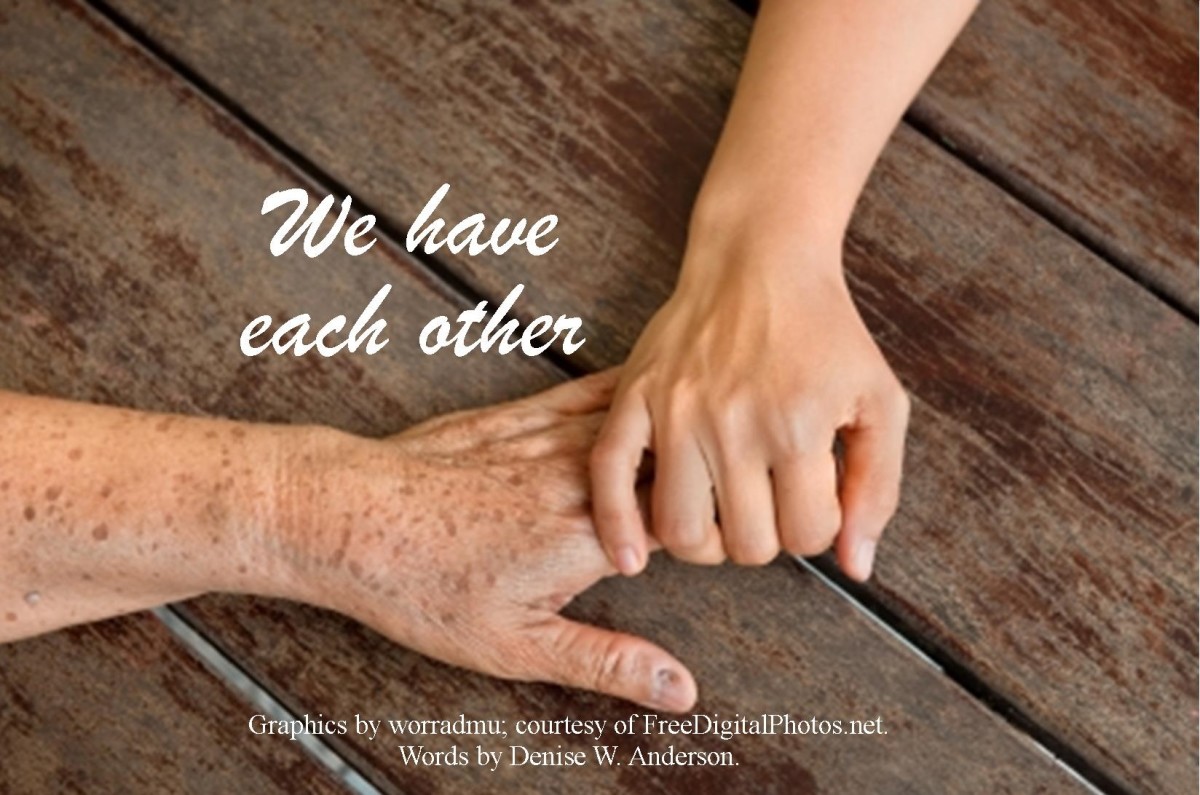
Why We Need a Support Group
As I found out with my foster brother, Bob, we are all interconnected. We belong within many different systems. Each one has its own purpose, strengths, and weaknesses. A realization of how we interact within each helps us to see where we have specific needs and desires. We all experience life differently.
A support group enables a person to deal with the difficulties and the positive experiences of life without turning to destructive influences. If the answer to the following questions is "yes," the beginnings of a strong support system are in place:
- Do you have someone you can call at a moment's notice to help you?
- Are you able to talk with a friend or relative about problems you experience?
- When you need to cry, do you have someone who will offer their shoulder?
- If something wonderful happens, do you have someone to share it with?
- Do you regularly get together with others for special events?
- Are there people who help you feel good about yourself when you are with them?
- When you have time, do you seek the presence of others with similar interests?
- If you are questioning your worth, do you have someone you can go to?
Life is like a puzzle....
We work very hard getting all the pieces in the right places only to find that when we do, the picture has changed.
— Denise W. Anderson
Sometimes*
Sometimes I feel so melancholy,
Even when my friends are jolly.
I never really seem to know
What made me feel so doggone low.
I try to think of something happy,
But those ideas don't come so snappy.
It's about then I finally decide,
To get on my knees
And let down my pride,
And petition the One
Who sent His Son
Down to this earth
That someday we might return
Back to His company.
I then begin to bring myself
Down off of that old dusty shelf,
Out into the world to help and see
All those who are worse off than me.
Finding the Right Group
A person who has a strong family network may not need a lot of outside support. Someone without it will need strong community support. Ready made groups are available in churches, athletic clubs, service clubs, or community gathering places. These types of groups are accepting of most anyone living in their particular locale and often accommodate a variety of people. It may take time to find a place where we feel at home, but the benefits are well worth the effort.
It may be necessary to overcome fear in order to get connected with a support group, especially if we come from a background where we have been isolated. If being in a group seems too overwhelming, we can look for individuals similar to ourselves that need companionship, and offer to do something together.
Sometimes, it takes a trauma to put us in a position where we know that we need something different. Having those around us who understand what we have been through lessens our burden and helps us feel loved.
*poem "Sometimes" by Denise W. Anderson.
This content is accurate and true to the best of the author’s knowledge and is not meant to substitute for formal and individualized advice from a qualified professional.
© 2012 Denise W Anderson

